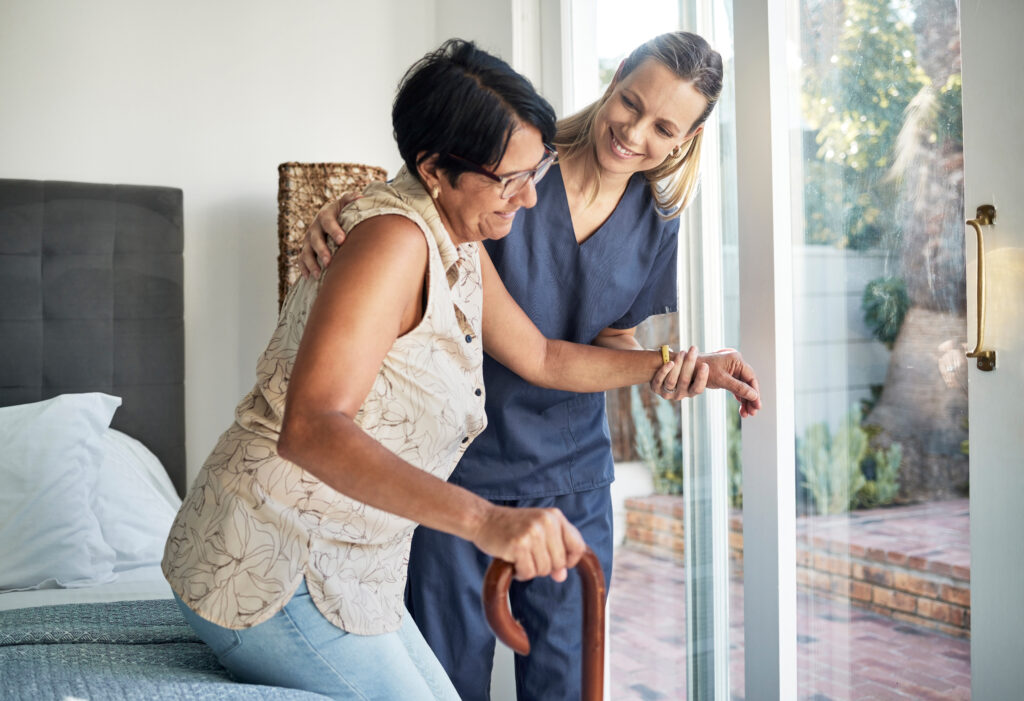Self-Care Tips for Aged Care RNs: Taking Care of the Carers
Aged Care Registered Nurses (RNs) are the backbone of the elderly support system in Australia’s healthcare system. These experts perform a wide range of duties, from giving emotional support to giving medication. Although the work is rewarding, it is also physically and mentally demanding. For Aged Care RNs, self-care is therefore essential rather than optional. To help you maintain your well-being and continue to provide the best care possible for your patients, this blog post aims to shed light on useful self-care advice for aged care registered nurses.
The Demands for Aged Care RNs
RNs working in aged care face a special set of difficulties. These may consist of:
- Long work hours
- Physical strain from lifting and helping patients
- Emotional strain from providing end-of-life care
- High patient-to-nurse ratio because of staffing shortages.
Because of these difficulties, self-care is essential for avoiding burnout and improving the standard of care provided.
Why Self-Care Tips for Aged Care RNs Matters?
Self-care is about living a balanced life so that you can meet the demands of your career, not just about treating yourself. Taking up self-care techniques allows you to:
- Boost patient care
- Lessen stress and burnout
- Enhance physical health
- Increase job satisfaction.
10 Self-Care Tips for Aged Care RNs
Let’s now discuss some practical self-care tips for aged care RNs.
1. Keep Up a Nutritional Diet
With hectic schedules and erratic work hours, fast food is a convenient choice. But eating a well-balanced, nutrient-dense diet can really change how you feel. To maintain your energy levels, plan meals that include fruits, vegetables, and lean protein.
2. Get Regular Exercise
Frequent exercise releases endorphins, which are organic mood enhancers, and keeps you physically fit. A daily 20-minute vigorous walk can have a significant impact.
3. Get Enough Rest
Sleep deprivation can negatively impact your performance and overall health. For your body and mind to get the rest they require, try to get at least 7-8 hours of good sleep each night.
4. Check-ins with emotions
Managing illness, ageing, and mortality can be emotionally taxing. Make time for frequent self-emotional check-ins. This could be a time for introspection in silence or even a therapy session.
5. Create a Network of Support
Create a network of loved ones, close friends, and coworkers that you can rely on for moral support or useful guidance. Having a solid support network can be very helpful in reducing stress at work.
6. Make mindfulness a habit
Meditation and other mindfulness practices can assist you in becoming more conscious of your thoughts and emotions. Developing effective stress management skills may begin with raising awareness of this.
7. Establish Limits
Never hesitate to say no when you’re feeling overburdened. Establishing boundaries is essential to preserving a positive work-life balance.
8. Keep Studying
Maintaining one’s professional growth can also be considered self-care. Gaining new abilities or honing ones you already have can make you feel more confident and satisfied at work.
9. Take a Break
Never undervalue the impact of a well-timed break. Make sure you schedule time off to rejuvenate and engage in enjoyable activities.
10. Speak with Experts
Do not be afraid to get professional assistance if you are having trouble managing your stress. Seeking professional tips from a dietitian, fitness trainer, or mental health specialist can be very helpful.
Self-Care Kit for Aged Care RNs
Developing a special “Self-Care Kit” is an inventive method to guarantee that you’re maintaining your regular self-care tips for aged care RNs. In essence, a self-care kit is an assortment of products that can promote relaxation, offer immediate solace during stressful moments, or act as a gentle reminder to take a break from the hectic tasks associated with being a nurse. The following products are suggested to be included in your self-care kit for nurses right away:
1. Essential oils or scented candles
Aromatherapy has a profound effect on mood. Three popular options for relaxation are camomile, eucalyptus, and lavender.
2. Stress Ball
A stress ball can offer a simple and quick way to decompress when things get hectic.
3. Healthy snacks
Add some healthy snacks, such as fruit slices, granola bars, or almonds. Stress can often be made worse by hunger, so always having a nutritious food source on hand can be quite helpful.
4. Pen and the Pocket Journal
Processing your thoughts and feelings through journaling is a great use of a pocket journal and pen. You can record any stresses or accomplishments you have during the day by keeping a small notebook in your kit.
5. Skincare Products
To help you feel more awake and alert, a little container of hand cream, lip balm, and possibly even a face mist can provide a little refreshment.
6. Inspirational Quotes or Affirmations
A few cards bearing your favourite affirmations or motivational sayings can give you the mental lift you need.
7. Tea Bags or Instant Coffee Packs
A warm beverage can be reassuring, and keeping your favourite teas or coffees on hand can help you feel better quickly.
8. Portable Bluetooth Speaker
Playing soothing music or your favourite songs can help you feel less stressed and anxious. A compact, lightweight speaker can be a useful addition to your equipment and won’t take up much room.
9. A Photo or Memento
During difficult times, a small memento that reminds you of happy times or a picture of loved ones can help you stay grounded.
10. Mini First Aid Package
Adhesive bandages, antiseptic wipes, and over-the-counter pain relievers are a few basic first-aid supplies that might be useful.
Keeping a self-care kit close at hand will increase your likelihood of taking those important breaks for yourself, which will ultimately improve your effectiveness and sense of fulfilment in your work as an aged care registered nurse.
Conclusion
Although providing care for the elderly is a noble and difficult job, your health shouldn’t suffer as a result. The above list of self-care tips for aged care RNs is intended to help you maintain your physical and mental well-being so that you can provide your patients with the best care possible. You are improving your capacity to positively influence the lives of people you care for in addition to benefiting yourself when you take the time to take care of yourself.
Recall that taking care of oneself is an essential part of providing high-quality care, not selfishness. It is possible to make sure that you are prepared to take on the demands of aged care nursing by implementing these self-care practices into your daily routine.



